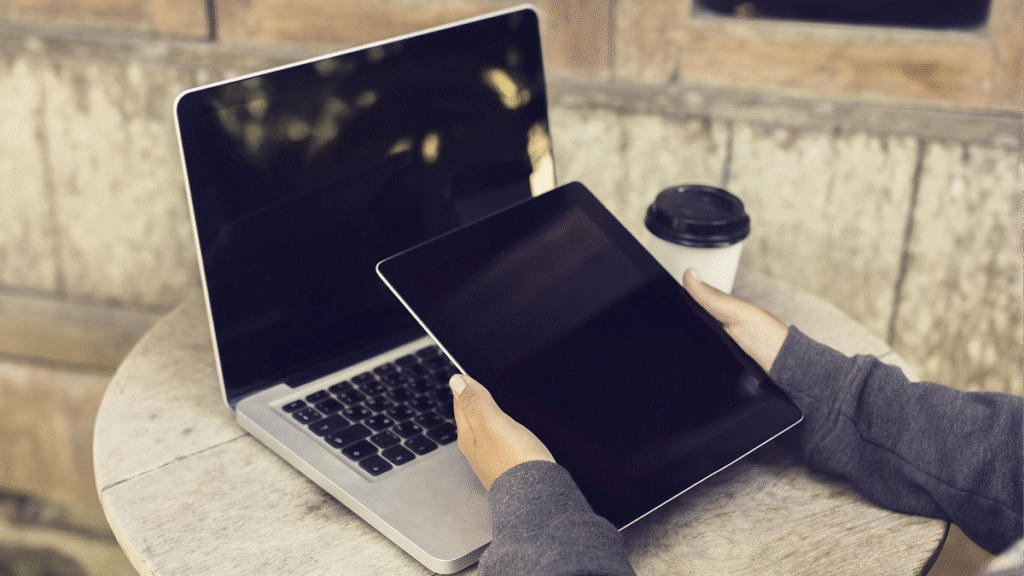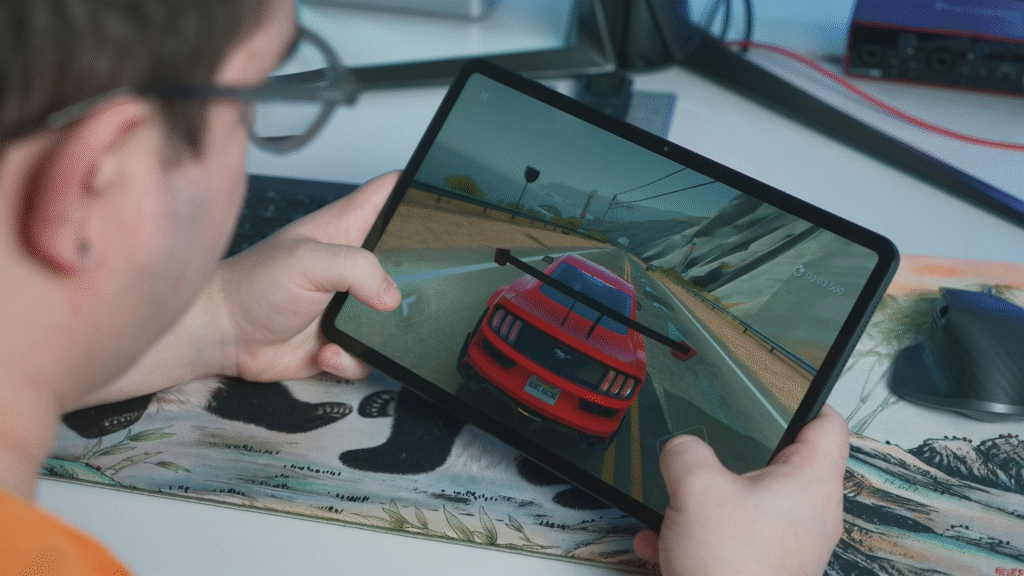Why a Tablet Is Better Than a Laptop for Everyday Use
As technology attempts to alter our ways of working or studying, the choice of a gadget cannot be overstated. Gone are the days when a laptop was thought to be the best option. Now, tablets are preferred more because of the benefits they deliver.
Some of the simple things that appeal to people these days in gadgets are portability, versatility, and a user-friendly interface.

The advent of mobile-first experiences, without a doubt, led to a paradigm shift in media consumption, shopping, and gaming. Tablets also support a lot of gaming activities on the go. In fact, most online games are designed to be mobile-friendly.
If you like gaming, you can enjoy no deposit bonuses that let you try casino games for free without financial risk. It becomes easier to access these bonuses on a tablet as you get the freedom to test new games anytime, anywhere.
This brings out the advantage of the tablet over a modern lifestyle, which often places convenience and accessibility as top priorities. Having said that, let’s check why a tablet is the best for accomplishing the majority of everyday tasks.
Portability & Convenience
One of the good arguments in favour of tablets is that they are portable. Most tablets weigh less than a kilogram.
- Tablets are much lighter when compared to conventional laptops. They can easily fit in a handbag or backpack. You can even hold it in one palm, minus that usual bulk. It is slim and, thereby, less cumbersome to carry, which is a plus point for students and professionals who are constantly on the move.
- The other advantage is instant start-up. Unless going through updates, the majority of laptops require time for the booting process, whereas a tablet starts in seconds. In situations such as commutes or trips, tablets deliver more convenience than laptops.
Battery Life & Efficiency
Coming to battery life, tablets have greater efficiency. Thanks to their energy-efficient processors and optimised OS. Even research proves this point.
A tablet has around 8 to 14 hours of battery life on mixed use. This could include browsing or streaming online videos, or you may also indulge in light gaming. On the other hand, a laptop can sustain for about 7 to 8 hours on comparatively similar usage conditions.
Due to this gap in efficiency, tablets stand a better chance for daily activities. Whether you want to read e-books or simply consume media, tablets can give you good battery support.
This is more convenient if you are traveling. Moreover, tablets are more reliable, and maintenance costs are also lower.
Ease of Use & Media Experience
Tablets are easy to use: all thanks to their intuitive interface that makes navigation a breeze. Tablets come with simple designs too, which also reduces the learning curve. On top of that, you don’t need keyboards or trackpads while browsing apps or watching videos.
Laptops, on the other hand, rely on keyboards, trackpads, and software. Users may find it challenging to learn how to use it on their first attempt.
Furthermore, tablets come with slick designs with high-resolution displays and excellent stereo loudspeakers.
Tablets also provide integrated streaming platform solutions. Be it video chatting with friends and family or e-book reading, tablets offer a more natural interaction.
Cost Effectiveness
Tablets are relatively cheap compared to laptops. Therefore, they are an ideal choice for regular usage. Laptops, having more computing power and multitasking capabilities, cost more and might require buying external keyboards, a mouse, or software separately.
Tablets, on the other hand, provide just essential functions: browsing the internet, watching movies, taking notes, or doing video calls in a lightweight system. This eliminates the need to procure external equipment.
Maintenance is easier for tablets, as they have fewer moving parts and consume less energy. Tablets present that perfect cost-effective solution, should functionality and price be a concern, while laptops still rule the roost when it comes to demanding tasks.

Adequacy for Everyday Tasks
Both tablets and laptops have their own distinct advantages when it comes to regular tasks, such as checking emails, watching movies, or videos.
Tablets are definitely preferable, though, due to their overall mobility and simplicity. They make it easy for users to hop onto video calls and easily navigate through applications.
There’s no setup hassle. However, laptops come with multitasking features. So, they are a great choice if you want to engage in heavy-duty tasks, such as editing spreadsheets or some other creative works.
Tablets will continue to grow, and the statistics speak for themselves. The market is set to reach USD 140 billion in 2035. This would mean there could be room for improvements in terms of new functionalities.
In fact, users may perform complex tasks in the coming years as well. You can explore the latest tablet trends to watch in 2024 to stay informed of all the new trends that are expected.
Let’s now quickly compare laptops and tablets, so you can get a better picture as to which one you should pick for daily use.
| Feature / Task | Tablets | Laptops |
| Web browsing | Quick, touch interface | Full browser, multiple tabs |
| Email & messaging | Light, app-based management | Best for complex tasks |
| Streaming and media | Light, immersive, and portable | Large screens with high processing power to handle high-res media |
| Document editing | Basic applications for light tasking | Full-fledged office applications for multitasking and complex documents |
| Video calls | Camera and mic built in and portable | Better for longer calls |
| Mobility | Portable and easy to carry anywhere | Bulkier, more apt for desk work |
| Learning curve | Little to none; user-friendly for all ages | Set up and more familiarization are needed |
Acknowledging Limitations
It’s true that tablets offer greater convenience compared to laptops. But it is also important to note the limitations that it has.
- Tablets do not have high processing power, which means it is unsuitable for heavy tasks.
- There’s a limit to the storage capacity.
- Offline file management is more restricted than on laptops.
- Tablets have limitations when it comes to upgrades. Their storage or RAM can’t be upgraded, and this can limit the long-term adaptability.
- Typing or adding inputs could be slightly challenging for extended tasks without a keyboard.
Now coming to laptops, they are the best choice for multitasking and come with more storage options. They are highly compatible with professional software, which makes them better suited for intensive work.
So, tablets are the best for those who want to engage mostly in light activities and casual use. But for heavy productivity or specialized software, laptops remain the best choice. You need to understand these trade-offs to decide which device would suit you the best for your regular needs.
Conclusion
To make the right choice between a tablet and a laptop, you need to think beyond specifications. You will have to think about your workflows and the purpose.
Think about where and how you use technology on an everyday basis. Tablets are handy for flexible activities such as note-taking, streaming, or casual browsing, while laptops accommodate heavy-duty work, multitasking, and professional software.
Another point to consider is the ecosystem integration. Tablets are much more likely to sync with your smartphone and cloud services for a neat experience.
Accessories like styluses or detachable keyboards make working on tablets a lot more attractive, thus bridging the gap with laptops. Other factors to consider are battery life, portability, and ease of setup.
Look at your daily activities, movement considerations, and future needs. Weighing how each device serves your daily routine helps you decide logically as to which one would support your productivity and budget.

Jim’s passion for Apple products ignited in 2007 when Steve Jobs introduced the first iPhone. This was a canon event in his life. Noticing a lack of iPad-focused content that is easy to understand even for “tech-noob”, he decided to create Tabletmonkeys in 2011.
Jim continues to share his expertise and passion for tablets, helping his audience as much as he can with his motto “One Swipe at a Time!”
